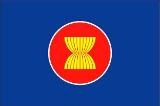 The Cebu Declaration on Energy Security is a pact to reduce oil dependency and greenhouse gas emissions. The document encourages the use of technologies that can reduce carbon emissions compared to the existing generation mix.
The Cebu Declaration on Energy Security is a pact to reduce oil dependency and greenhouse gas emissions. The document encourages the use of technologies that can reduce carbon emissions compared to the existing generation mix.The Declaration was signed on 15 January at the 12th ASEAN summit, which was made part of a larger South Asian summit by the inclusion of regional 'dialogue partners'. The ASEAN nations are: Brunei, Cambodia, Indonesia, Laos, Malaysia, Myanmar, the Philippines, Singapore, Thailand and Vietnam; while dialogue partners included Australia, China, Japan, New Zealand and South Korea.
Hosted in Cebu in the Philippines by the country's president, Gloria Macapagal Arroyo, the summit heard discussion on key regional projects like the ASEAN power grid and the trans-ASEAN gas pipeline. Ultimately the leaders would like to create an open energy market. Haruhiko Kuroda, chief of the Asian Development Bank, told the meeting that a regional trading bloc would increase competitiveness and help to improve economic conditions for the continent of Asia's 750 million poorest people.
Leaders stressed the importance of energy efficiency and agreed to monitor the security, environmental, health and safety aspects of the energy sector. Arroyo said that ASEAN nation officials would consider establishing a regional regime on nuclear safety.
Of the ASEAN nations, Indonesia, Thailand and Vietnam have expressed desires to employ nuclear energy. Indonesia has signed nuclear cooperation agreements with both Russia and South Korea, while it is discussing the deployment of 7000 MWe of nuclear capacity along its northern coast. According to Indonesian officials, a site in the Ujah Lemah Abang area of Central Java has been chosen for the first plant.
Among the ASEAN's regional partners, China, India, Japan and South Korea have all made significant use of nuclear energy a national policy, while Australia produces almost a quarter of the world's uranium supply.
Further information
Association of Southeast Asian Nations
WNA's Emerging Nuclear Energy Countries information paper














